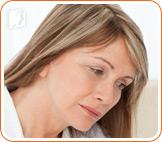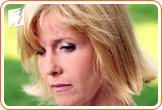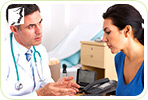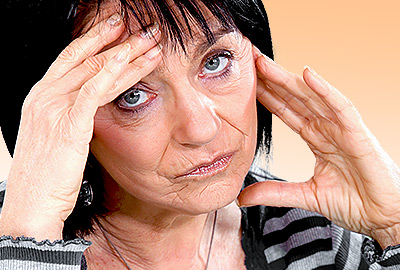Midlife is often difficult for women, and depression affects twice as many women as it does men. In the period preceding menopause, when estrogen levels are decreasing, women may experience symptoms of sadness, isolation, and depression. Stress may be caused by family problems, financial concerns, relationship issues, and many other reasons, and entering midlife can be a change that many women find difficult.
When entering this stage many women are fearful of prescription drugs and turn to holistic treatment instead. Read on to learn more about this treatment method.
I Am Middle Aged and Feel Alone. Am I Depressed?
There are many signs of menopausal depression, and it is important to recognize that it is treatable.
Signs of depression may include:

- Fatigue or tiredness
- Loss of energy
- Sleeping problems
- Weight loss
- Irritability
- Change in activities
- Isolation
- Low self-esteem
- Thoughts of suicide
A lot of these symptoms are similar to those affecting women approaching menopause:
- Anxiety
- Mood swings
- Fatigue
- Sleep disorders
Just because you are middle aged and feeling depressed does not mean you are entering menopause. It is important to find out more about your mental and physical health, in order to find a balance. Knowing your body will help you be aware of the changes.
Why Do I Feel Depressed?

Individuals in their 40s are more likely to become depressed than any other age group. In a recent survey done by CBS News, only 19% of women from the ages of 45 to 53 said they were happy. Women often have to bear the weight of family problems and years of stress, coupled with financial concerns, health problems and an array of other issues that can make midlife difficult for many.
Exercise and eating a healthy diet will have positive effects on your mind and body. A holistic lifestyle can make the transition of menopause seem clearer and easier.
Treatments for Menopausal Depression
If you feel depressed and are experiencing one of the symptoms mentioned above or think that you are approaching menopause, it is important to visit your doctor. Your doctor can give you personalized advice about this stage of life and discuss possible treatment options with you.

During this time in a woman's life it is important to maintain a balance. Exercise daily, eat a healthy diet, get enough sleep, and take time for yourself. Keeping yourself healthy and happy is key when facing new challenges.
There are also alternative medicines which many women find to be effective. They range from herbal supplements to natural therapy methods, which benefit many women without producing negative side effects.
Click on the following links for more information about alternative medicines to treat menopausal depression.
Sources
- Boyles, Salynn, and Dr. Louise Change.(n.d). "Nearing Menopause? Depression a Risk".Retrieved from www.webmd.com
- University Health Services.(n.d)."Clinical Depression". Retrieved from www.uhs.berkeley.edu
- University of Michigan Depression Center.(n.d)."Women and Depression: Menopause". Retrieved from www.med.umich.edu.



